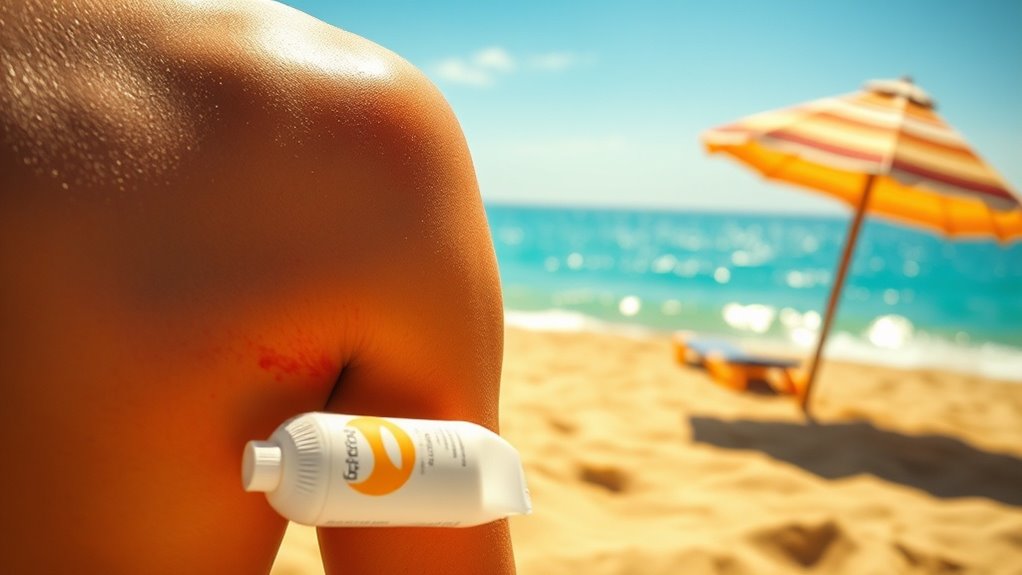Why Skipping Sunscreen Is Never a Good Idea
Skipping sunscreen is like playing Russian roulette with your skin—it’s a gamble you can’t afford. The harmful effects of UV rays extend far beyond sunburns; they can lead to serious skin issues over time. You might think it’s safe to skip it on cloudy days, but the truth is far more concerning. Understanding the real risks and proper application methods could mean the difference between youthful skin and premature aging. What are you overlooking?
The Dangers of UV Rays
Although you might enjoy basking in the sun, it’s crucial to understand the dangers of UV rays.
Skipping sunscreen exposes your skin to harmful ultraviolet radiation that can lead to immediate effects like sunburn and long-term consequences such as skin cancer.
By neglecting this protective measure, you’re increasing your risk of serious skin damage. Chronic sun exposure increases chances of skin cancer, making it even more critical to prioritize your skin’s health by applying sunscreen regularly.
Premature Aging and Skin Damage
When you skip sunscreen, you not only risk immediate sunburn but also set the stage for premature aging and skin damage.
UV exposure breaks down collagen, leading to wrinkles, fine lines, and sagging skin. Additionally, you may notice uneven skin tone and dark spots over time. Daily sunscreen use prevents premature aging and protects your skin, keeping it youthful and resilient against the harmful effects of sun exposure.
Increase in Skin Cancer Risks
Failing to apply sunscreen dramatically increases your risk of developing skin cancer.
The ultraviolet (UV) rays from the sun can damage your skin’s DNA, leading to mutations and, ultimately, cancer. Regular exposure without protection heightens this risk significantly.
Protecting yourself with sunscreen not only reduces your chance of skin cancer but also fosters long-term skin health and vitality.
Don’t take that chance.
The Importance of Daily Application
Applying sunscreen daily is crucial, regardless of the weather or your plans for the day.
Harmful UV rays can penetrate clouds and harm your skin even when it’s overcast. By applying sunscreen each morning, you’re establishing a protective barrier against potential skin damage.
Consistent use not only prevents sunburn but also reduces long-term risks like premature aging and skin cancer.
Make it a non-negotiable habit.
Misconceptions About Weather and Sunscreen
Many people believe that sunscreen isn’t necessary on cloudy or rainy days, but this misconception can lead to serious consequences for your skin. Ultraviolet rays can penetrate clouds and reflect off surfaces like water and snow. Here’s a quick comparison to understand why you should always wear sunscreen, no matter the weather.
| Weather Condition | UV Index | Sunscreen Needed? |
|---|---|---|
| Sunny | High | Yes |
| Cloudy | Moderate | Yes |
| Rainy | Low | Yes |
| Snowy | High | Yes |
Choosing the Right Sunscreen for Your Skin
How do you choose the right sunscreen for your skin type and lifestyle?
Start by identifying your skin type: oily, dry, or sensitive.
Look for non-comedogenic formulas if you’re prone to breakouts.
Check for broad-spectrum protection with at least SPF 30.
If you spend time outdoors, opt for water-resistant options.
Always apply generously and reapply every two hours for best results.

